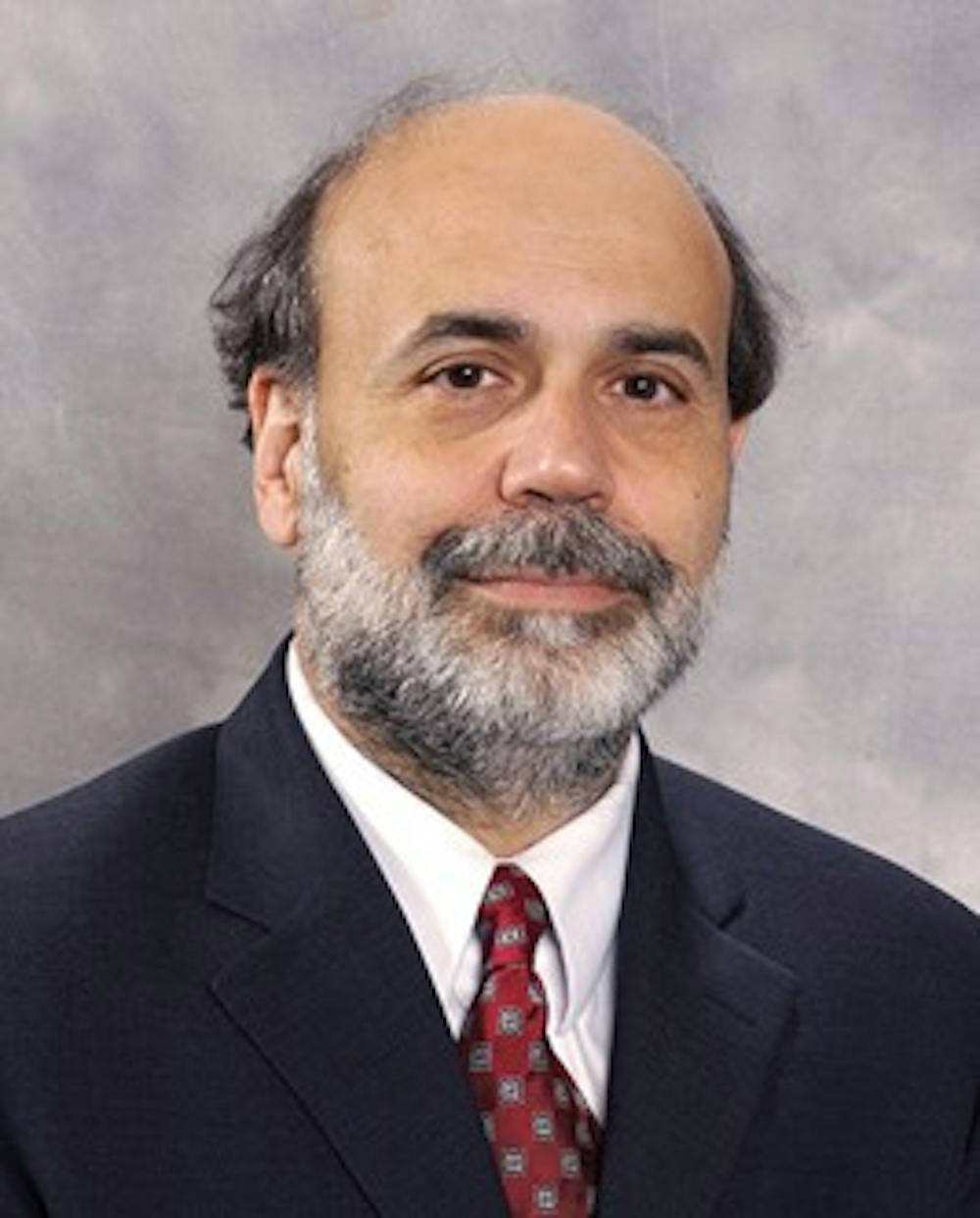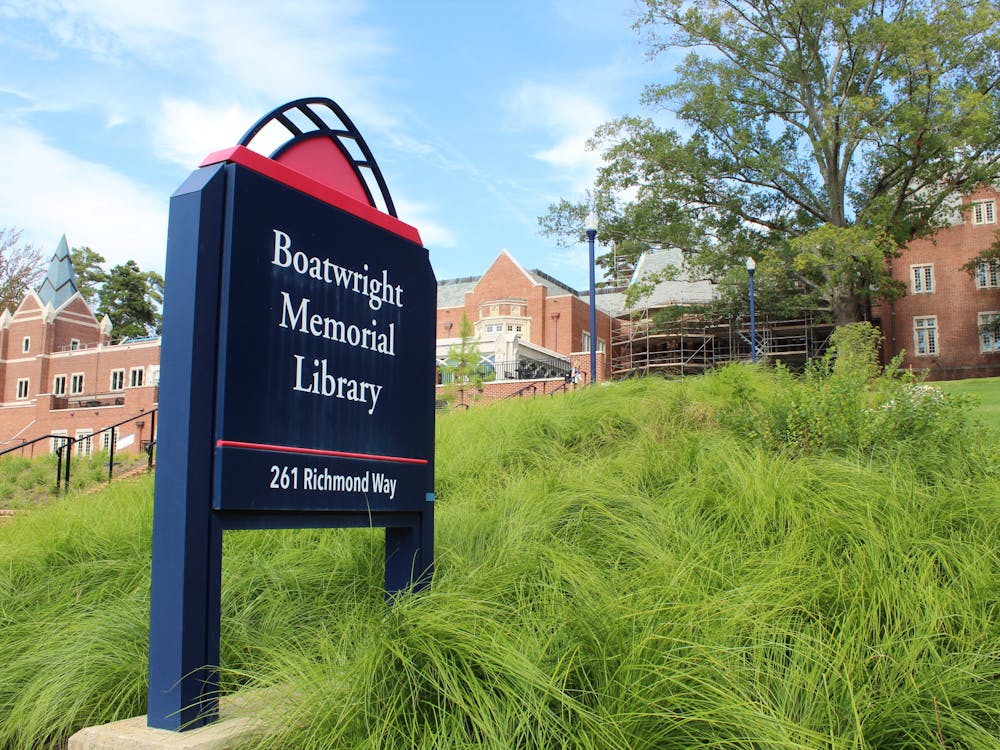His words move the world's economic markets.
His policies capture the attention of Wall Street investors, swing interest rates, sway consumer confidence, and attempt prevent economic recessions while expanding the U.S. economy.
He is Benjamin S. Bernanke, chairman of the Board of Governors of the U.S. Federal Reserve System, and he will address stability in global finance at the University of Richmond's Jepson Alumni Center at noon on April 10.
His appearance at the university comes at a time when home foreclosures nationwide have reached record highs, Wall Street is clamoring over the volatile stock market, jobs losses are mounting, and the Fed is seizing extraordinary power to rescue the waning U.S. economy.
"Mr. Bernanke is playing a central role in the history of our nation and the world during a critical time," President Edward Ayers told The Collegian in an e-mail. "It will be a great honor to host him."
Widely considered the second most powerful man in the world, Bernanke will speak at Richmond as part of a luncheon for the World Affairs Council of Greater Richmond, a group with close ties to the university.
"He (Bernanke) was already coming to the city, and (the business school) convinced him to come to UR," said Jorge Haddock, dean of the business school. "We're very proud of it." The event is not open to the public, but students will be able to view Bernanke's speech from the school's cable-access channel. The speech will also be simulcast at several locations on campus, including the Commons.
"Since we do not know what the chairman intends to say, it would be impossible for us to predict the impact," said Randolph Bell, president of the World Affairs Council of Greater Richmond and former ambassador and special envoy at the U.S. State Department. "Given ... the overwhelming importance of the Federal Reserve's decisions, it will inevitably be widespread."
Economists are blaming the downturn on a nationwide slowdown in the housing market and crises in the credit markets.
Bernanke, in speaking in front of Congressional lawmakers Wednesday, acknowledged for the first time that the United States was in danger of slipping into a recession, which some economists say is already a reality. It would be the first since 2001, following the Sept. 11 terrorist attacks.
"A recession is possible," Bernanke said. "Our estimates are that we're slighting growing at the moment, but we think that there's a chance that for the first half as a whole there might be a slight contraction." National media including The Associated Press, The Wall Street Journal, Bloomberg, The Washington Post, C-SPAN, and CNN will likely be on campus to cover Bernanke's speech because his public appearances are so few.
Enjoy what you're reading?
Signup for our newsletter
He has faced mounting pressure in recent months to steer the economy in the right direction, and the Fed has responded by slashing interest rates since the beginning of this year to persuade consumers to start spending.
And there is, perhaps, no better man for the job of leading the Federal Reserve during this time of crisis.
According to Dean Croushore, associate professor of economics, Bernanke understands the role of credit flows within the economy better than any current economist.
"We are right in the middle of a very likely recession," Croushore said. "He is the guy working hardest to prevent it." A better part of Bernanke's research has spanned credit-related topics examining bankruptcy, recession and the Great Depression.
Croushore said he believed that potential areas of Bernanke's speech may include credit flows and how central banks could help stabilize the financial system.
While the housing market was expanding, many financial institutions invested in high-risk mortgage-backed securities -- investments that are failing because of homeowners' inability to pay their loans.
That has affected smaller businesses, which themselves are invested in the institutions that made these risky decisions.
The current monetary assistance provided by the Fed to financial institutions is a first. The Fed backed a $29 billion take over of struggling Bear Stearns by JP Morgan, a move that generated significant controversy.
Normally, the Fed -- a network of 13 banks stationed throughout the country, including Richmond -- deals with the operations of commercial banks.
At the April 10 speech, the Richmond chapter of the World Affairs Council -- which works to inform people and stimulate economic development locally -- will also present an award to two Virginia companies that have acted as good citizens in their international business operations.
Support independent student media
You can make a tax-deductible donation by clicking the button below, which takes you to our secure PayPal account. The page is set up to receive contributions in whatever amount you designate. We look forward to using the money we raise to further our mission of providing honest and accurate information to students, faculty, staff, alumni and others in the general public.
Donate Now



